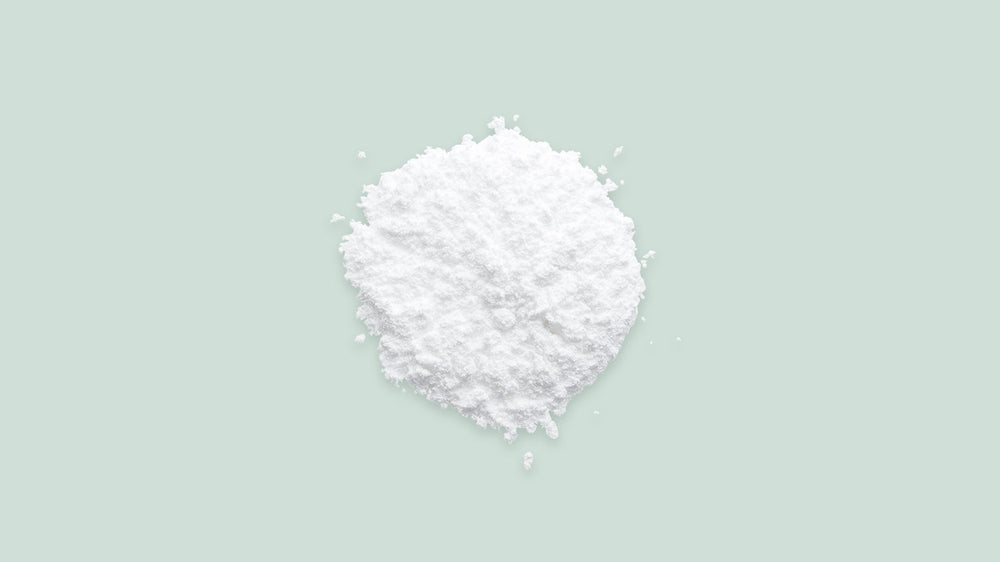Hyaluronic acid is a naturally occurring fluid produced by the body that lubricates and cushions joints and other tissues. It is used in cosmetics to help with water retention and it contributes to maintaining healthy moisture levels.
Its moisturizing properties have been harnessed by the hair and skin care world to bring great skin and hair benefits. For this reason, the team at Divi included hyaluronic acid in our staple Scalp Serum product.
This article will explore the scientific research behind this ingredient and show how it contributes to the effectiveness of Divi’s Scalp Serum.
Do Studies Support Hyaluronic Acid as a Treatment for Hair Loss?
A 2014 study looked at the benefits of using a hyaluronic acid sodium gel to reduce inflammation through topical use. The study focused on participants ages 18-75 who had seborrheic dermatitis. The vast majority (92.3%) of the test subjects showed improvements after just eight weeks. Hyaluronic acid was shown to reduce inflammatory cell activity and positively impact cell proliferation, locomotion, angiogenesis and recognition.
Another study published in 2021 explored the effects of using a non-crosslinked hyaluronic acid filler containing a number of amino acids in human follicle dermal papilla cells (DPCs). The results showed that the hyaluronic acid filler was found to protect DPCs from the effects of oxidative stress and help increase vascular endothelial growth factor (VEGF) levels. VEGF is the biological process of creating new blood vessels to supply oxygen to various parts of the body.
Dermatologists also recognize the benefits of hyaluronic acid’s water retention properties, especially its ability to revitalize hair, hold moisture, and improve the look, texture and health of hair.
Hyaluronic acid has also been shown in studies to enhance HDP cell proliferation, aggregation and migration by decreasing the cell substratum and creating an increase in cell-to-cell adhesion.
Symptoms Hyaluronic Acid Can Treat
Androgenetic Alopecia
- Androgenetic alopecia is known as male or female pattern hair loss. It is caused by different factors, including genetics, androgens and DHT (Dihydrotestosterone).
- DHTis derived from testosterone and can cause an adverse reaction in hair follicles. In particular, it can impact the hair growth cycle by shortening and shrinking hair follicles, which can accelerate the shedding phase and make it significantly more difficult for hair to grow back.
- Hyaluronic acid can help slow the effects of androgenetic alopecia by rejuvenating hair bulbs on the base of the hair follicles and improving the blood flow to the scalp. Increased blood flow to the scalp helps deliver the oxygen and nutrients required for scalp health and promotes hair growth.
Dry, Itchy Scalp
- Hyaluronic acid plays a significant role in the retention of moisture in the skin. A deficiency can result in an itchy, dry scalp and several related conditions.
- Hyaluronic acid has been shown in studies to absorb as much as its own weight in water. This enables the acid to moisturize hair follicles and ensures that the scalp is also kept moisturized.
Scalp Psoriasis
- Scalp psoriasis affects the immune system, which causes accelerated growth of skin cells. This results in scaly and itchy patches.
- Hyaluronic acid’s clinically proven anti-inflammatory properties effectively soothe the scalp and calm scalp psoriasis symptoms.
Receding Hairline
- Hydration is essential to healthy hair and a healthy scalp microbiome. Moisturizing the cuticle and hair shaft can help strengthen the hair. This provides a fuller appearance and minimizes the risk of hair breakage or shedding.
Is Hyaluronic Acid Safe for the Scalp?
Hyaluronic acid is considered safe for skin and hair, as it is a naturally occurring acid. It is regularly used in skin and hair care products, including Divi’s Scalp Serum.
If you have any concerns about specific ingredients, you should always consult your doctor or patch test products to see if you’ll have an adverse reaction.
All of Divi’s products are dermatologically tested to ensure safety and a perfect blend of each ingredient. Each ingredient is provided in an optimal balance for improving scalp and skin health, creating the best environment for hair growth.
Does Hyaluronic Acid Treat Hair Loss?
Specific ingredients won’t magically transform hair loss, but as part of a wider care routine, they can be beneficial.
The hydrating properties of hyaluronic acid will benefit the hair follicle and scalp. Keeping your skin healthy, having a good hair care routine and maintaining a healthy diet should also be a priority if you have hair loss concerns.
Your scalp microbiome is a fragile system that requires optimal performance from every aspect. Using hair care products that contain hyaluronic acid can help maintain this balance.
Divi’s Scalp Serum uses a variety of ingredients that complement the benefits of hyaluronic acid and ensure that your scalp is well cared for.
Common Causes of Hair Loss
Maintaining good skin and scalp health is an excellent way to minimize the symptoms of hair loss. Understanding what causes hair loss can also help you combat it. Common causes of hair loss include:
- Poor diet – Your hair requires the right nutrients for healthy growth. These include zinc, copper, vitamin D and omega fatty acids. Ensuring that you have a healthy diet and are free from any nutrient deficiencies can help minimize the risk of hair loss.
- Weight loss – Rapid weight loss can also cause issues leading to hair loss. If you are changing your diet, it is better to do so gradually and ensure that you are still getting the nutrients your body requires.
- Hormonal imbalance – The most common causes of hormonal imbalances occur in women, and include pregnancy, menopause and the use of birth control medication. Hormonal imbalances can also result in hair loss in men.
- Hair care – Using shampoos or other hair products that contain harmful chemicals can damage hair follicles. Hair can also be damaged through hairstyles, such as tight ponytails, which can put undue stress on hair, causing weakness and breakage.
- Medical problems – Medical conditions, stress and medication can all affect your hair cycle. Increased shedding or thinning hair can result from certain conditions or medications, so it is always worth consulting your doctor if you have any concerns.
- Genetics – In some cases, genetics will play a big part in the appearance and type of hair that you have and whether you will suffer from hair loss. Taking care of your hair and scalp and ensuring that you have a healthy diet can help to delay this.
- Old age – Old age will affect your body’s ability to produce certain nutrients and can result in slowing hair growth and hair thinning.
Other Ingredients in Divi’s Hair Care Products That Can Help Prevent Hair Loss or Promote Hair Growth
Divi’s Scalp Serum contains hyaluronic acid, which can help combat hair thinning, nourish hair follicles and remove product build-up. Some of the other active, clean ingredients in the formula include:
- Copper tripeptide-1
- Rosemary leaf extract
- Green tea leaf extract
- Eucalyptus oil
- Menthol
- Caffeine
- Tea tree oil
FAQs
What products can you find hyaluronic acid in?
Hyaluronic acid is a naturally occurring substance that can be found in many supplements, topical products and food, including:
- Oranges
- Almonds
- Edamame
- Kale
- Sweet potatoes
- Tofu
Hyaluronic acid supplements can be taken topically, orally or via injection. Divi’s Scalp Serum provides a safe, topical use of hyaluronic acid in its dermatologically tested blend optimized for hair and scalp health, creating the best conditions for hair growth and ongoing hair health.
How often should I use hyaluronic acid on my hair?
Hyaluronic acid is naturally found in the human body and safe to use daily as a supplement to improve your scalp and hair health.
Divi’s Scalp Serum can be used daily, either in the morning or at night. It should be used on towel-dried hair or a dry scalp. Simply massage ¾ of a dropper into the scalp—focusing on the areas you want to target and leave it to absorb into the skin.
Will hyaluronic acid make my hair grow faster?
Hyaluronic acid won’t make hair grow faster or longer, but it is a vital part of maintaining a healthy scalp microbiome. Improving the health of your scalp will promote a better environment for your hair to prosper.
Why Divi’s Scalp Serum?
Divi’s hair care products use carefully selected ingredients that complement each other, promoting several important hair growth factors. They are formulated to improve skin health, promote hair regrowth and improve overall hair quality.
Divi’s Scalp Serum, which includes hyaluronic acid, is dermatologically tested, suitable for vegan use and cruelty-free, making them an excellent option for anyone looking for an ethical and clean approach to scalp and hair rejuvenation.
What’s the next step? Easy. Buy your first bottle of Divi’s Scalp Serum to reap the benefits of our tested and science-backed proprietary formula.
References
https://www.ncbi.nlm.nih.gov/pmc/articles/PMC8572598/
https://www.hairguard.com/hyaluronic-acid-hair-growth/
https://facemedstore.com/blogs/blog/hyaluronic-acid-for-hair
https://www.healthline.com/health/beauty-skin-care/hyaluronic-acid-for-hair
https://stemcellsjournals.onlinelibrary.wiley.com/doi/full/10.1002/sctm.19-0410
https://www.healthline.com/health/beauty-skin-care/hyaluronic-acid-for-hair#hair-benefits
https://www.frontiersin.org/articles/10.3389/fphar.2020.01105/full
https://www.webmd.com/skin-problems-and-treatments/hair-loss/understanding-hair-loss-basics
https://www.ncbi.nlm.nih.gov/pmc/articles/PMC4025514/
https://doctor.webmd.com/doctor/beth-goldstein-e418feb6-5e74-4349-ac3c-7f59176e3587-overview
https://www.sciencedirect.com/science/article/abs/pii/S1742706122000873






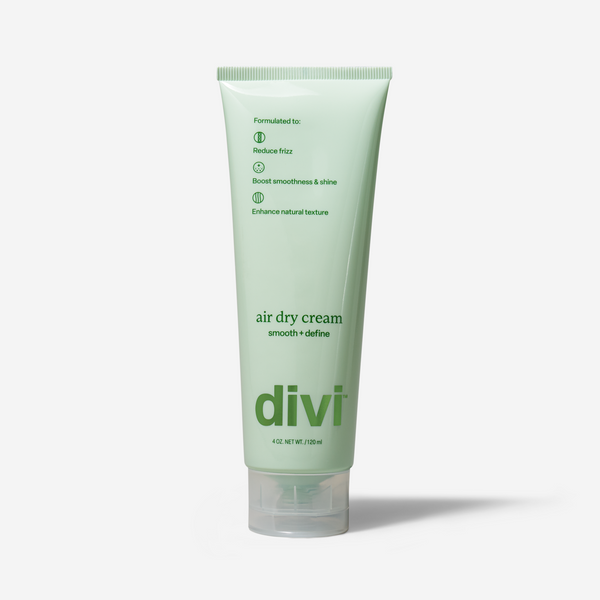
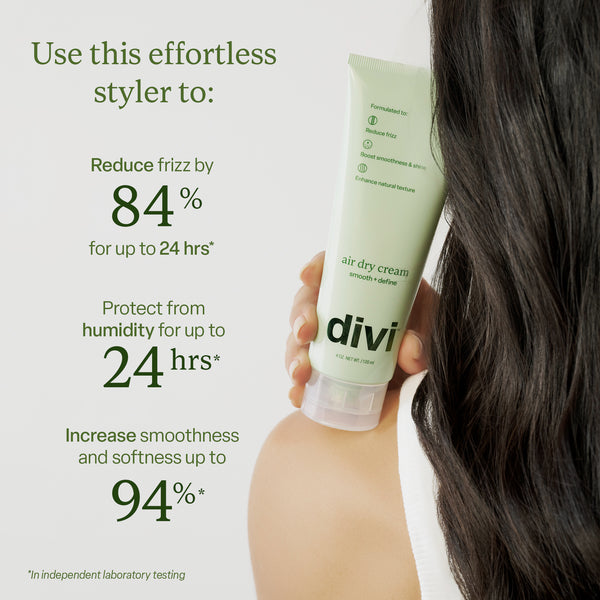

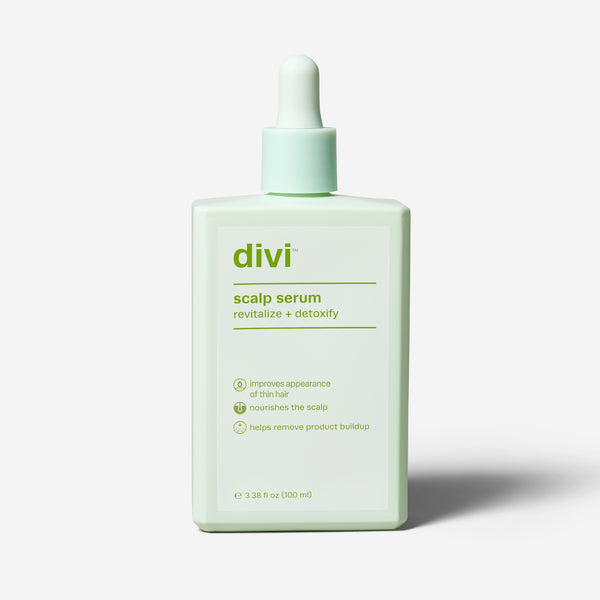

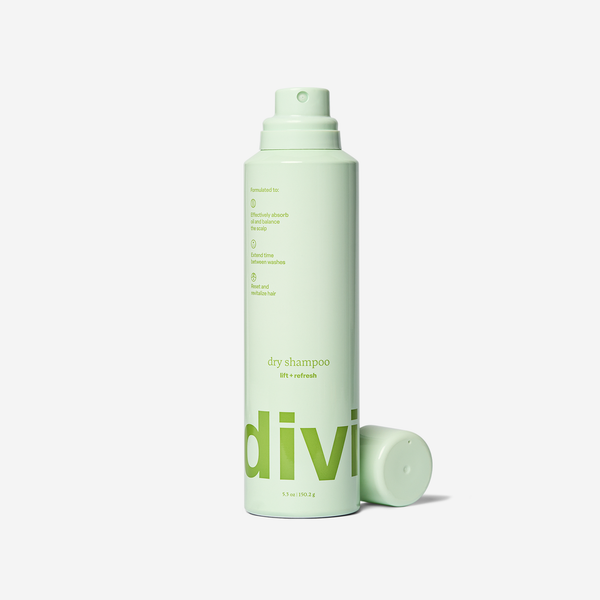

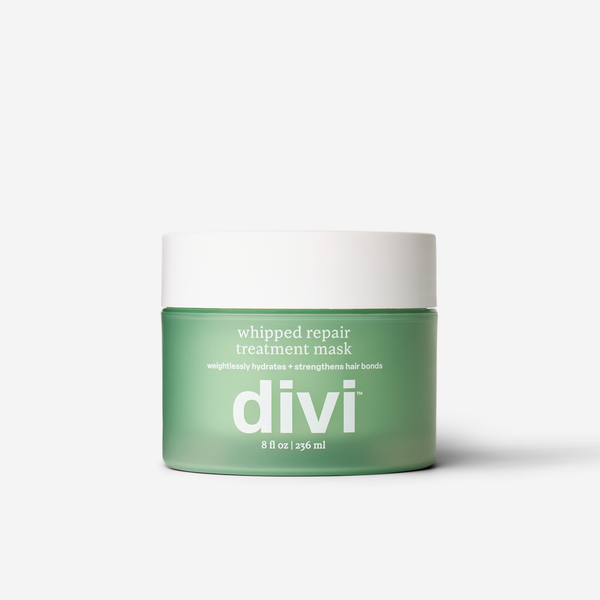
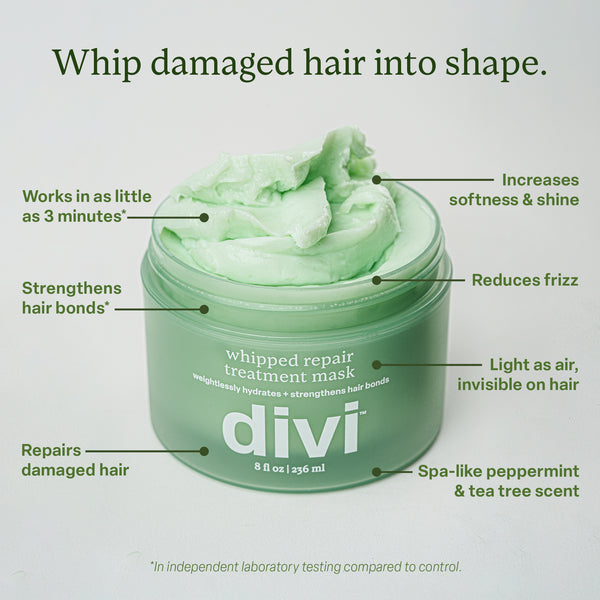
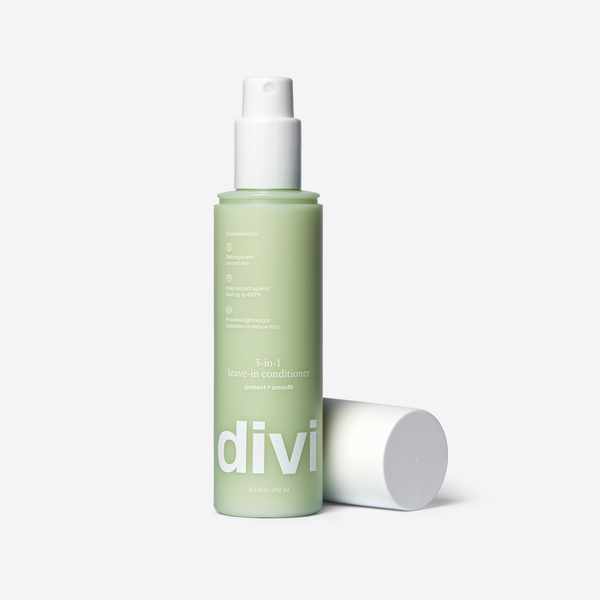

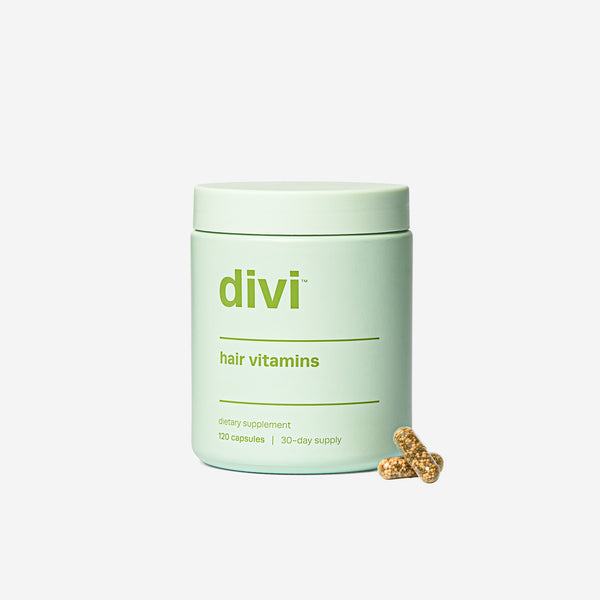
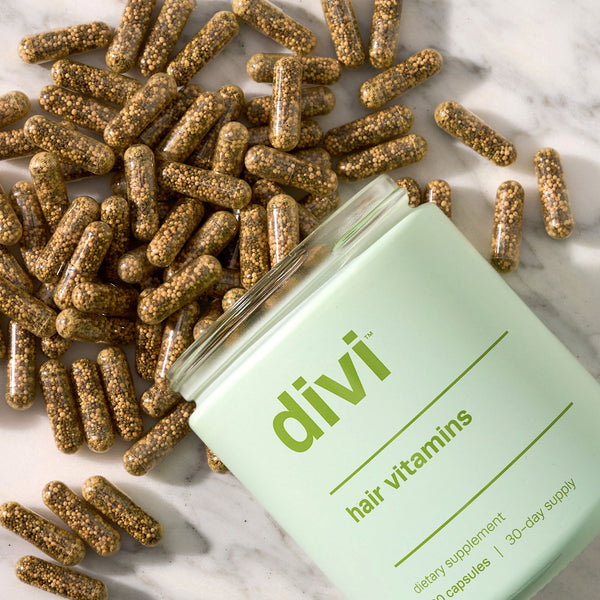
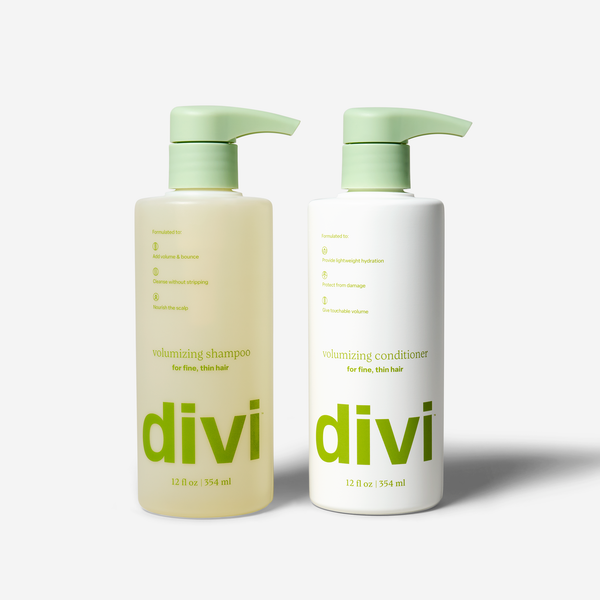





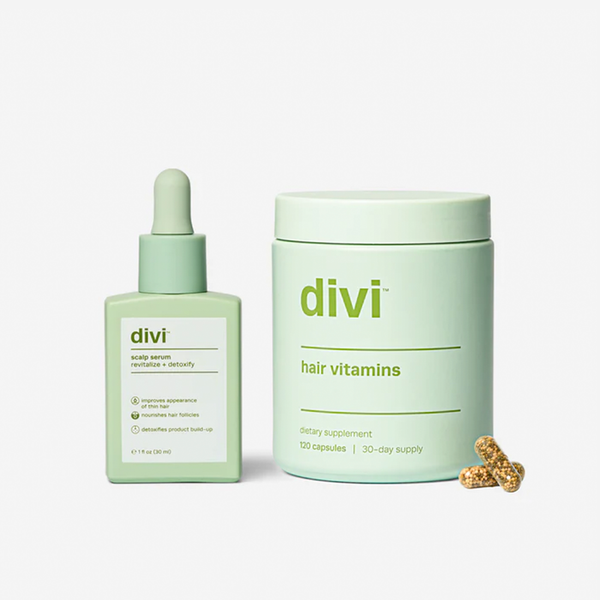
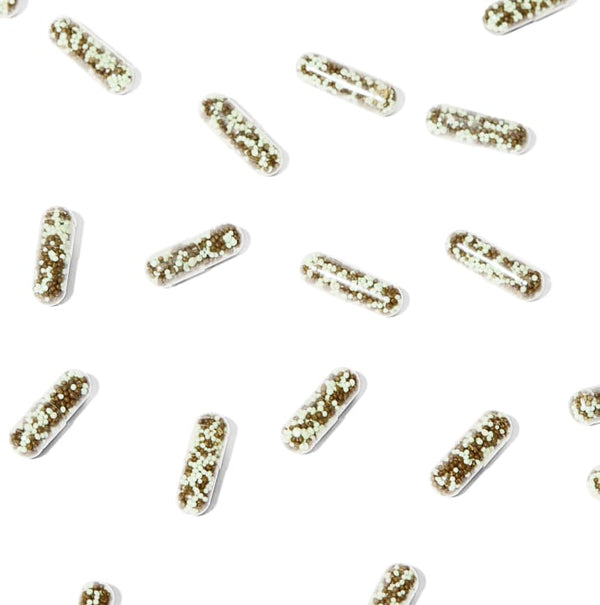
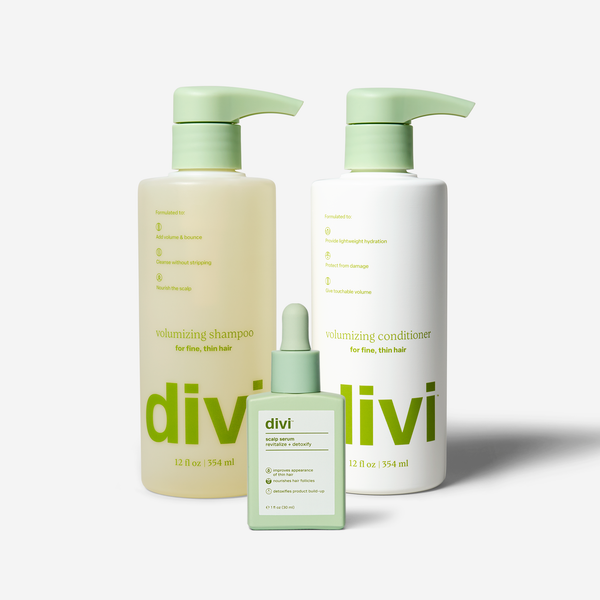
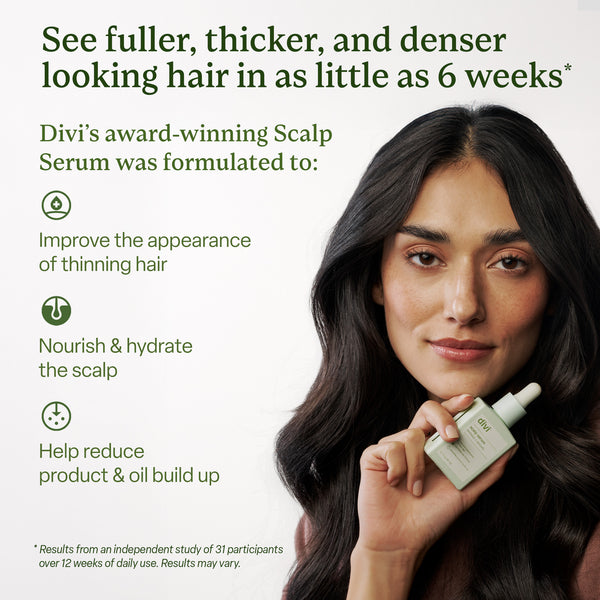











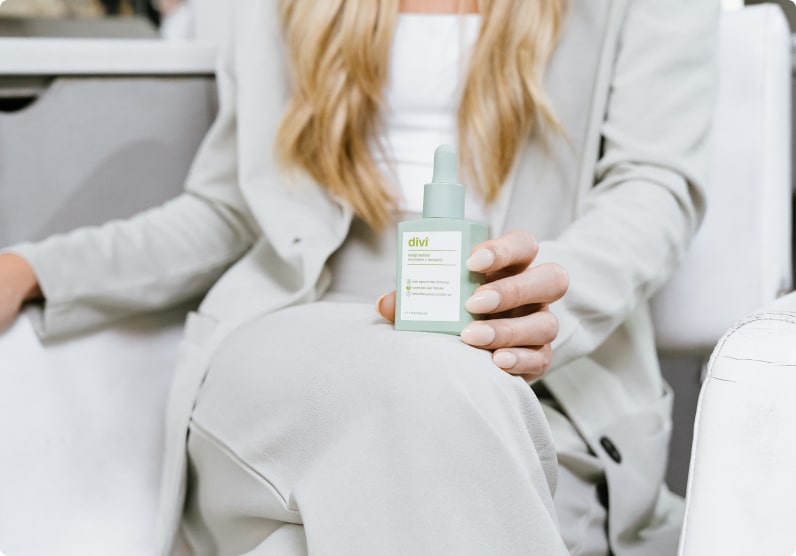






 30ml Scalp Serum
30ml Scalp Serum
 100ml Scalp Serum
100ml Scalp Serum
 Volumizing Shampoo
Volumizing Shampoo
 Hydrating Shampoo
Hydrating Shampoo
 Volumizing Conditioner
Volumizing Conditioner
 Hydrating Conditioner
Hydrating Conditioner
 3-in-1 Leave-In Conditioner
3-in-1 Leave-In Conditioner
 Best Sellers Bundle
Best Sellers Bundle
 Volumizing Starter Bundle
Volumizing Starter Bundle
 Hydrating Starter Bundle
Hydrating Starter Bundle
 The Healthy Hair Bundle
The Healthy Hair Bundle
 Hair Vitamins Trio
Hair Vitamins Trio
 Dry Shampoo
Dry Shampoo
 Hair Vitamins
Hair Vitamins
 Volumizing Shampoo & Conditioner
Volumizing Shampoo & Conditioner
 Travel-Sized Volume Duo
Travel-Sized Volume Duo
 Hydrating Shampoo & Conditioner
Hydrating Shampoo & Conditioner
 Travel-Sized Hydrating Duo
Travel-Sized Hydrating Duo
 Travel-Sized Dry Shampoo
Travel-Sized Dry Shampoo
 Travel-Sized Dry Shampoo Trio
Travel-Sized Dry Shampoo Trio
